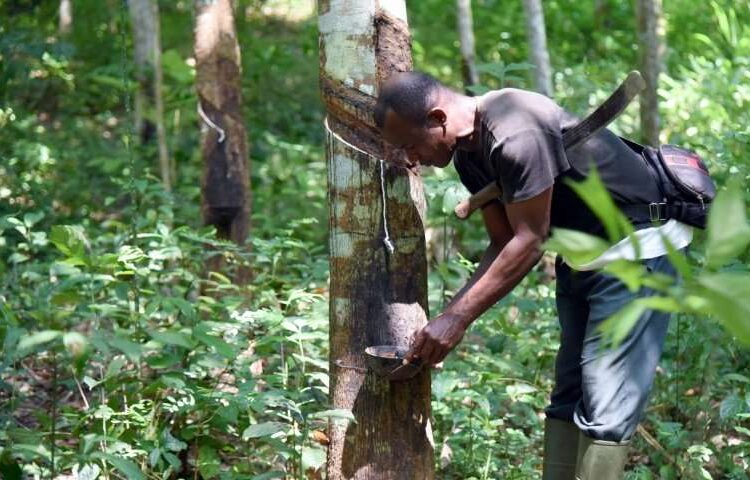The National Rubber Producers, Processors And Marketers Association of Nigeria (NARPPMAN) has appealed to the Lagos State Government to support the agro rubber business.
The National President of NARPPMAN, Mr Peter Igbinosun, made the plea at the inauguration of the Lagos State chapter of the association on Saturday in Lagos.
Igbinosun was represented by the National Secretary of NARPPMAN, Mr Stephen Orimisan.
Speaking on the theme: ‘Economic and environmental sustainability: Natural rubber to the rescue,” Igbinosun called on other agriculture stakeholders to offer support to the sector for enhanced growth and development.
He said that collaboration of the state government and concerned ministries would help to develop the rubber sub-sector in the country.
“In the near future, the rubber sub-sector will become employers of labour contributing to internally generated revenue in the state.
“NARPPMAN, Lagos State chapter, has been given a target to develop 5,000 hectares of rubber plantation in 10 years.
“This 10-year-project will cost over N8 billion to plant 5,000 hectares.
“This project will employ 15,000 people, directly involved in the farming activities, and 25 others on direct contract and service provision,” he said.
Igbinosun said that the objective was to revive the rubber sub-sector and its value chain in the six geo-political zones of the country.
The keynote speaker and Vice Chairman, NARPPMAN, Osun, Mr Adeyokunnu Adeniyi, said that natural rubber, as a panacea for Nigeria’s socio-economic and environmental challenges, could not be exhaustively discussed.
Adeniyi said that with the rate of unemployment, underemployment, increased rate of poverty and insecurity, it was high time government and the people looked in the direction of natural rubber.
“The current situation in Nigeria calls for an alternative high revenue yielding product that does not destroy, but enhances the stability and sustainability of our ecosystem.
“Incidentally and happily, natural rubber fits this description. Luckily, natural rubber is a tropical plant that grows well in rain forest areas,” he said.
Adeniyi added that natural rubber cultivation was highly profitable, noting that the margin of profit depends on the planting methodology employed and trees per hectare density.
Also, Mr Adejuyigbe Alo, Chairman of NARPPMAN, Lagos State chapter, said that cultivation of natural rubber on commercial scales comes with a wide range of socio-economic benefits.
Alo said that membership was not distance restricted as one could reside in any part of the globe and be a member of the association.
“Lagos State may not have the size of land that rubber plantations require, but there is a back up arrangement to site the larger chunk of our farmland requirements in one or two neighbouring states,” he said.
On his part, Speaker of the Lagos State House of Assembly, Mr Mudashiru Obasa, promised to support the association by formulating policies and laws which would promote rubber plantation in the state.
Obasa was represented at the event by Mr Richard Adedamola Kasunmu, Chairman, House Committee on Lands.
Natural rubber is a tree plant that produces a sticky, milky secretion called latex which is collected by making incisions on its back.
The latex is refined into lumps and ready for commercial processing into a wide range of products and by-products of diverse uses, across industries and households all over the world.













